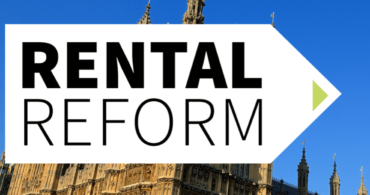Insights

Halifax now lends more on homes with better EPCs
Halifax has thrown down the gauntlet to other mortgage lenders by directly linking borrowing capacity to a property’s energy efficiency. Those seeking a mortgage for an energy-guzzling home may find their loan options limited, while buyers of eco-friendly properties could unlock larger loans. This bold move signals a shift in the mortgage landscape, where green credentials are no longer just a ‘nice-to-have’ but a key factor in affordability.
Read More
The Landlord Exodus: Is the Party Over for Buy-to-Let?
Landlords are facing a challenging new reality. Tax hikes, including the phasing out of mortgage interest relief, are eating into profits. Meanwhile, a wave of new regulations, from the end of no-fault evictions to stricter energy efficiency standards, is adding to the burden. Many landlords are choosing to sell up, potentially impacting the availability and affordability of rental properties. Is this the end of the golden age of buy-to-let?

Landlords Face Tough Choices as EPC Deadline Looms
A new survey reveals that most landlords are aware of upcoming Energy Performance Certificate (EPC) regulations, but many are unprepared. Over two-thirds of landlords own properties that don’t meet the new ‘C’ target, raising questions about how they will adapt. Will they invest in upgrades, pass the costs on to tenants, or simply sell up? Read on to discover the challenges and opportunities facing landlords in the face of these new rules…

Stamp Duty Hike Sends Shockwaves Through Buy-to-Let Market
A sharp increase in stamp duty on buy-to-let properties has sparked fears of a mass exodus of landlords from the market. This move, intended to cool the overheated property market, could backfire by reducing the availability of rental homes and driving up rents, experts warn.
Landlords are now faced with a difficult choice: absorb the increased costs, sell their properties, or abandon planned investments. The long-term consequences for both landlords and tenants remain uncertain.

Labour’s New Rental Reforms: A Seismic Shift And Five Solutions for UK Landlords
Labour’s rental reforms are bringing major changes to the UK’s private rental sector, aiming to enhance tenant rights but also creating challenges for landlords. These challenges include the end of no-fault evictions, indefinite tenancies, and rent increase restrictions, leading to uncertainty and potential financial implications for landlords. However, guaranteed rent agencies offer a solution by handling property management and providing a guaranteed rental income, ensuring compliance with new regulations and offering peace of mind to landlords in this changing landscape.

A Comprehensive Guide to Buying a House to Let
Buying a house to rent out can be a profitable investment with a strategic plan. This guide covers essential steps: planning your strategy, marketing, property management, and legal compliance. Learn to identify target tenants, choose the right location, and maximise rental income while minimising risks.

Understanding Houses in Multiple Occupation (HMOs) for Property Investors
Learn about Houses in Multiple Occupation (HMOs), their licensing requirements, and safety standards. Ensure compliance to avoid penalties, provide safe, affordable housing for tenants and how to maximise your investment return by using guaranteed rent.

Converting a Residential Mortgage to Buy-to-Let: What You Need to Know
If you currently have a regular residential mortgage on your home, are moving out and want to let the existing one out, then you may be wondering if changing to a buy to let mortgage is possible. The answer is there are two main options. One is to obtain consent from your current lender to let your property out, or re-mortgage to a buy-to-let loan.

7 Effective Strategies to Minimise Inheritance Tax and Maximise Guaranteed Rent on Your Property
Reducing inheritance tax on your property is essential to maximise the value passed to your heirs. Learn effective strategies like gifting, trusts, and exemptions to minimise your tax burden.

Landlords Beware: Tenant Referencing Fraud Continues to Rise
Tenant referencing platform Homeppl has revealed how a fraudulent tenant attempted to rent properties from three different letting agents, highlighting the serious challenges landlords are up against. Whilst the referencing technology was able to thwart the attempts to rent, Homeppl has warned that landlords and letting agents using traditional referencing systems would not have been so fortunate.






